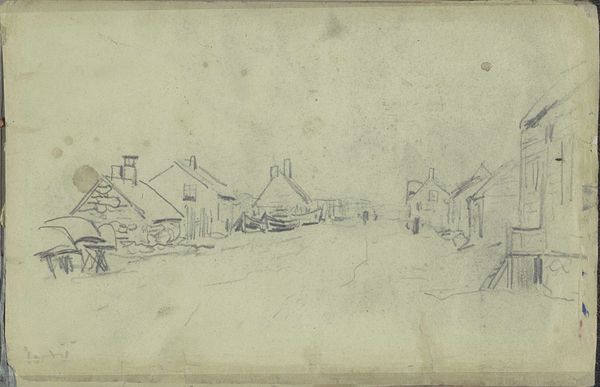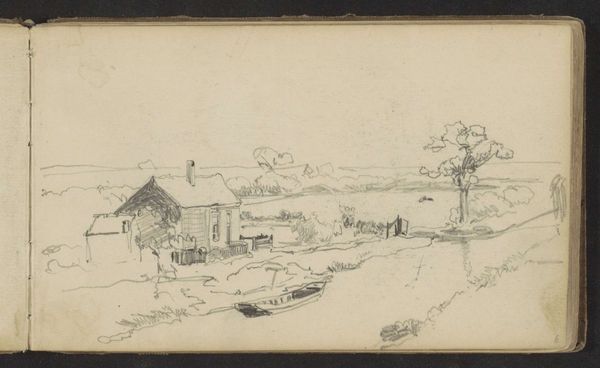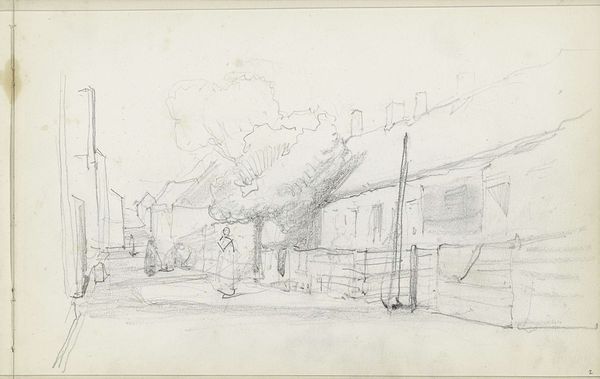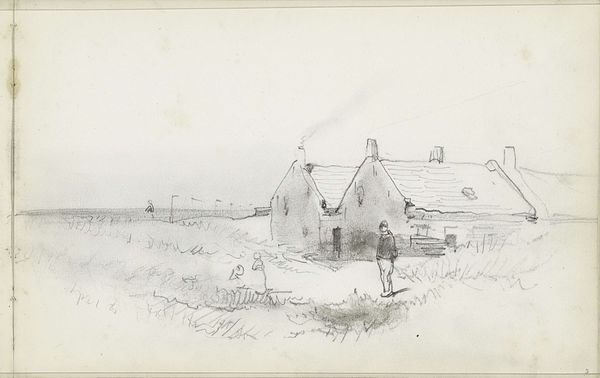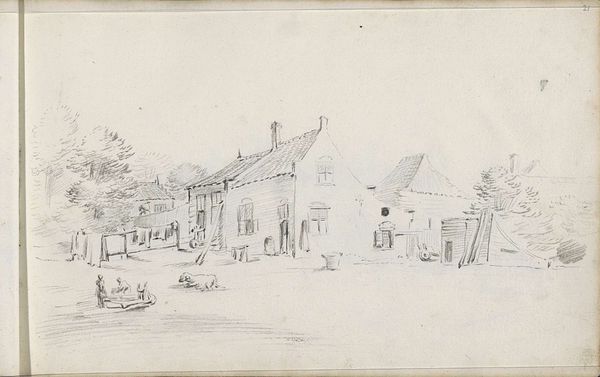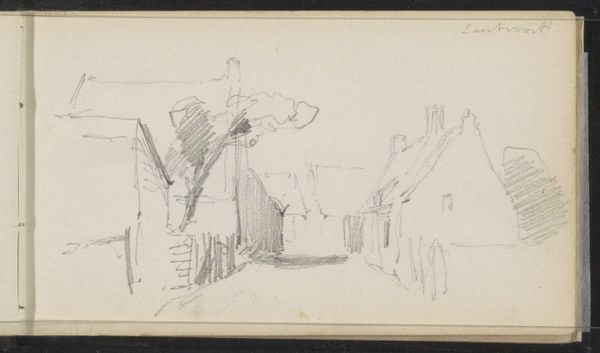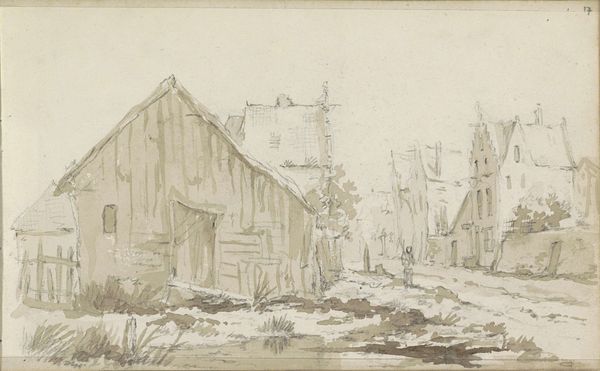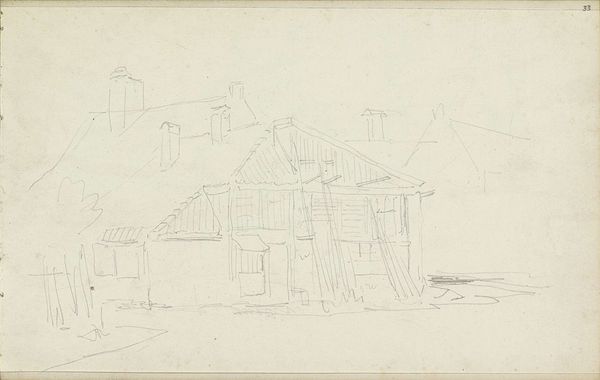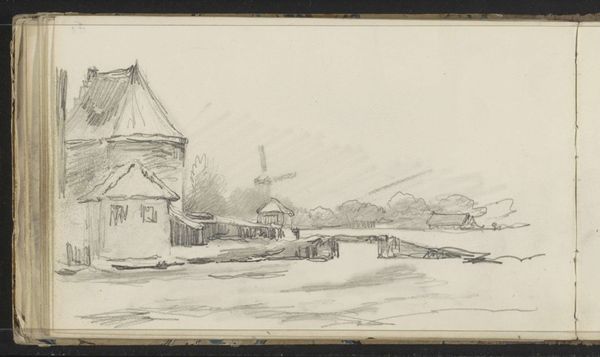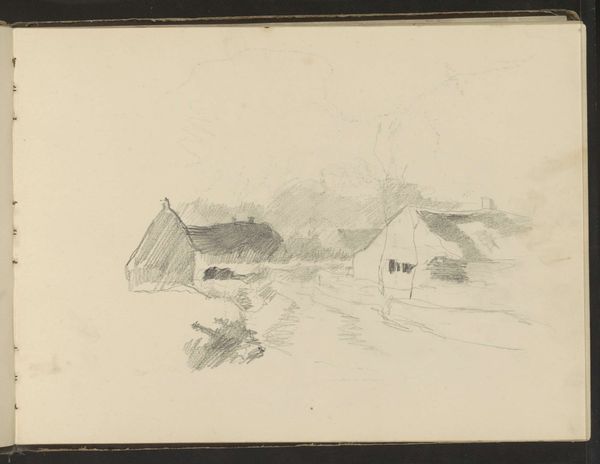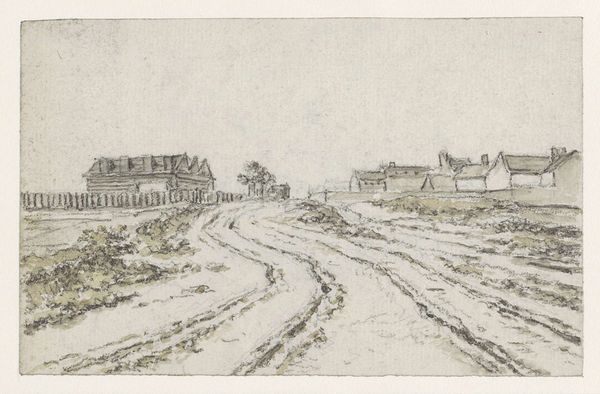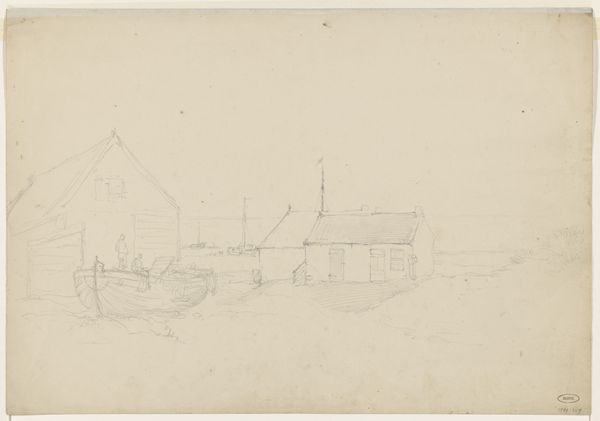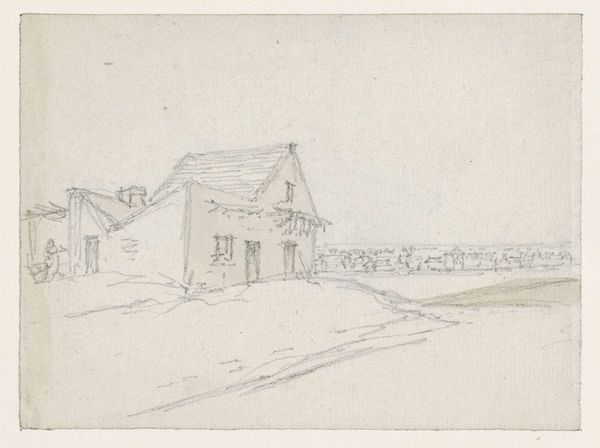
drawing, paper, pencil
#
drawing
#
landscape
#
etching
#
paper
#
pencil
#
cityscape
#
genre-painting
#
realism
Copyright: Rijks Museum: Open Domain
Curator: Before us hangs "Fisher Houses in Scheveningen", a pencil drawing on paper dating to about 1873, created by Johannes Bosboom and held here at the Rijksmuseum. Editor: My first impression? A fragile memory. It’s like a scene sketched from a dream, or perhaps seen through a dusty window. All soft grays and fading edges. Curator: Yes, that’s a perceptive reading. Bosboom wasn’t aiming for hyper-realism here. Consider the symbolism of the fishing village itself. These were tight-knit communities, reliant on the sea, of course, but also bound by tradition and a certain… resignation, almost a fatalism. You see how the homes are clustered; each building presses against the others. Editor: It feels communal, yeah, but there’s a certain claustrophobia too. And the muted tones heighten the sense of…precarity, I suppose? Fishing is, after all, a very unstable industry. Not unlike being an artist. Curator: Precisely. The etching work too – that's vital to understanding the mood, almost a fog-like effect over the architecture itself. Note also the few figures—see how small and seemingly insignificant they appear compared to the imposing, weighty shapes of the houses and structures. Editor: They’re just there… part of the scene, but also dwarfed by it. Makes you wonder about the artist's viewpoint – is he empathetic, detached, melancholic? Also those chickens... what is their symbolism in that era? Curator: Chickens usually symbolise something akin to human domesticity. The placement of these little creatures on what appears to be barren grounds speaks for itself, don’t you think? The artist here provides a scene brimming with narrative potential! Editor: Ah, yes, very evocative narrative elements. For me it whispers more about the impermanence of things. Even these sturdy homes feel vulnerable, somehow on the edge of disappearing, both swallowed up by the gray and the horizon. Curator: A fitting interpretation given Bosboom’s interest in capturing fleeting moments. And considering the historical changes facing fishing communities during this period, that reading holds significant weight. Thank you for your profound comment. Editor: Thank you for taking us there. Always enjoy excavating images with you.
Comments
No comments
Be the first to comment and join the conversation on the ultimate creative platform.
